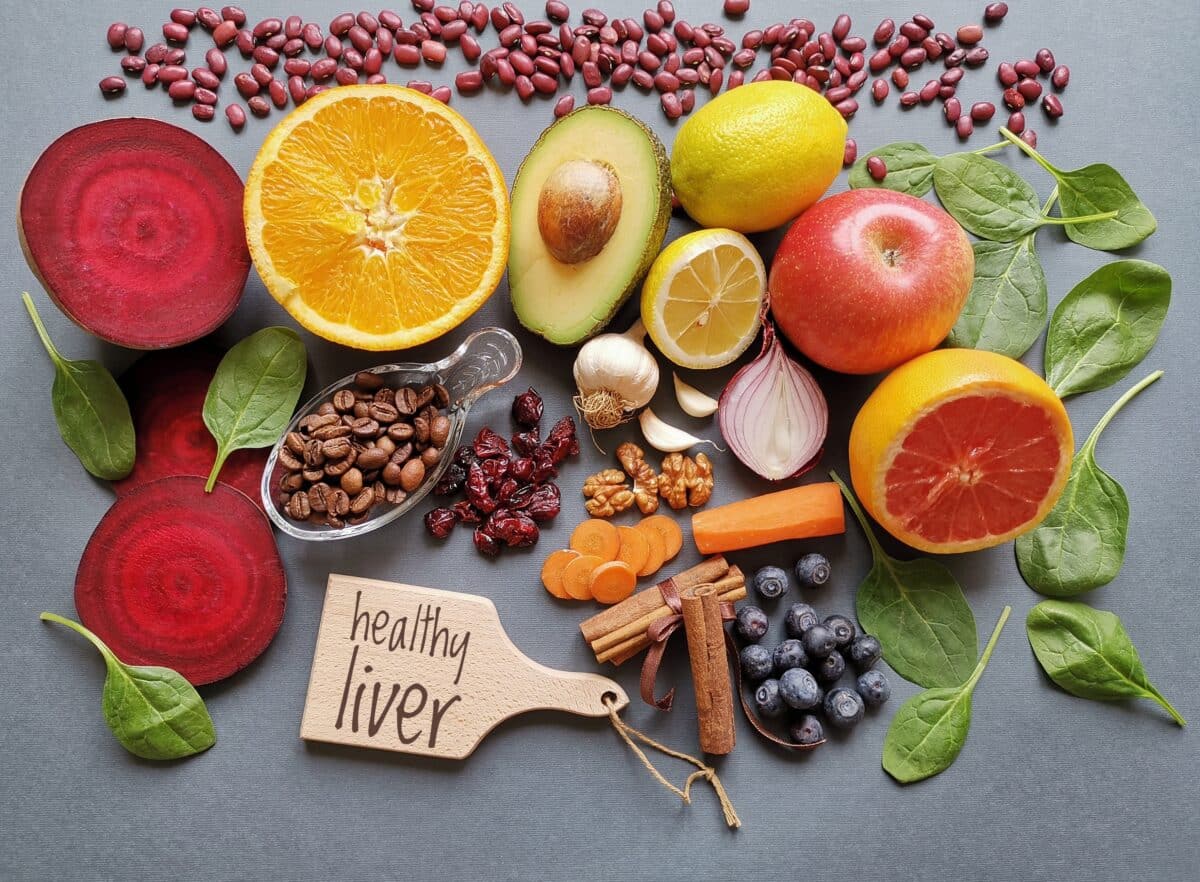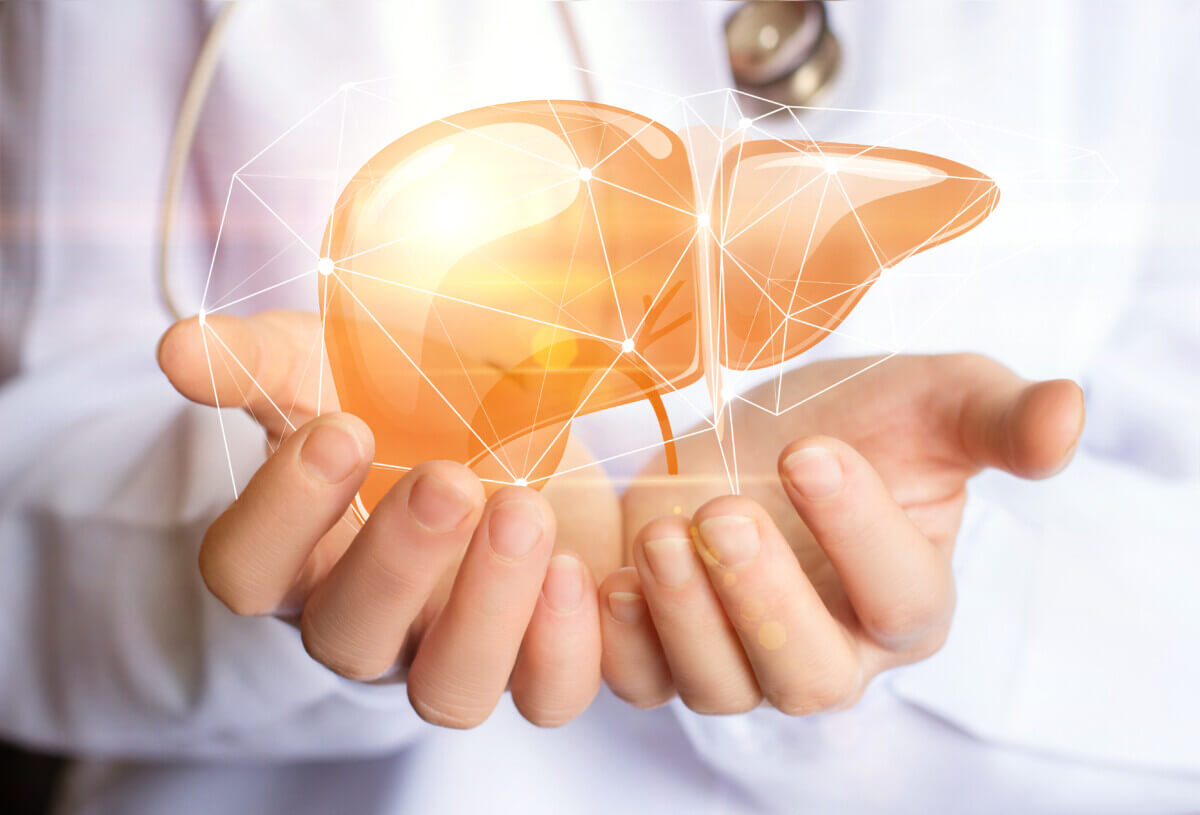
(© Danijela - stock.adobe.com)
Rather than ask “What does the liver do,” you might ask “What doesn’t the liver do?” That’s how active the liver is, with its hundreds of vital functions that have essential impacts on all organs and their functions. Eating the right foods can help ensure your liver is functioning optimally.
To simplify, the liver functions can be categorized as follows:
- Nutrient processing: The liver processes the nutrients consumed as food, and uses those as building blocks to manufacture additional essential nutrients.
- Bile production: The liver produces bile, necessary for fat digestion and waste removal.
- Protein synthesis: The liver manufactures important proteins for many vital processes and uses, including the important blood clotting factors.
- Detoxification: The liver filters toxins from blood.
- Drug metabolism: The liver metabolizes drugs into forms easier for the body to use or eliminate.
- Metabolism regulation: The liver has the key metabolic role of converting glycogen to glucose and has additional critical functions in overall metabolic balance.
The wedge-shaped, reddish-brown, football-sized organ occupies the upper right region of your abdomen. Diet has a key role in maintaining the health of your liver. Some of the compounds within the foods you eat have been found to improve liver enzymes, decrease inflammation and oxidative stress, and protect against fat accumulation. The following foods and beverages are best for keeping your liver healthy.

1. Grapefruit
Grapefruit contains liver-protecting antioxidants; the two main antioxidants are naringenin and naringin. They work in two ways: by protecting cells and by reducing inflammation.
A 2023 study showed that these antioxidants help limit the development of hepatic fibrosis, a harmful condition in which excessive connective tissue builds up throughout the structure of the liver, like scarring. The condition is the result of chronic inflammation. Grapefruit or its juice have not been tested in humans; it’s the antioxidants in the fruit which have been studied.
2. Blueberries and cranberries
These berries contain anthocyanins – antioxidants which are linked to many health benefits. Blueberry extract has been found to inhibit the growth of liver cancer cells in laboratory dishes, although the effect has not been studied in people.
3. Coffee
Coffee has remarkable liver-protecting effects, even in people who already have liver disease. It lowers the risk of cirrhosis and death in people with chronic liver disease. Coffee also decreases inflammation. It has even been shown to decrease the risk of death in people with chronic liver disease. The greatest benefits are seen in those who drink at least three cups of coffee daily.
4. Green Tea
Green tea reduces levels of liver enzymes in people with nonalcoholic fatty liver disease (NAFLD). That protective finding has been the outcome of multiple studies. It has also been shown that people who drink green tea are at lower risk for liver cancer. That effect was demonstrated in people who drank at least 4 cups of green tea per day. Caution is required, though. There have been reports of liver damage in people who took green tea supplements, rather than drinking the beverage.
5. Grapes
Some studies in animals showed that grapes and grape juice may reduce inflammation, prevent liver cell damage, and increase antioxidant levels. The same effects were not demonstrated in human study.
6. Prickly pear
Prickly pear is a cactus with edible fruit and juice. It has been used as medical treatment for wound care, fatigue, liver disease, and digestion problems. One study showed it was effective as a treatment for hangovers. It may help protect the liver from alcoholic toxicity via the fruit’s anti-inflammatory and antioxidant functions.
7. Beetroot juice
Beetroot juice contains nitrate compounds and antioxidants called betalains. These have been found to reduce inflammation and oxidative damage to the liver in animal studies. There are no human studies with beetroot juice.
8. Nuts
Key nutrients in nuts include healthy fats, antioxidants, and vitamin E. People who have a higher intake of nuts are at lower risk for NAFLD.
9. Fatty fish
Fatty fish are rich in omega-3 fatty acids, which have been shown to reduce liver fat and triglycerides in people with fatty accumulation causing inflammation in the liver and in NAFLD. The ratio of omega-6 to omega-3 fatty acids should be kept in mind. Most people consume too many omega-6 fatty acids (found in plant oils and butter). It has been found that a high omega-6 to omega-3 ratio was associated with the development of liver disease in one animal study. Consider reducing your intake of omega-6 fatty acids. Fatty fish include:
10. Olive oil
Olive oil is a plant oil with healthy fats which positively affect the liver. In older adults, the Mediterranean diet, which is rich in olive oil, has been associated with a reduced risk of fatty liver. Olive oil consumption in humans is associated with less fat accumulation in the liver and more favorable liver enzyme levels.
Your liver is so important that it is worth doing what you can to protect it. The 10 foods listed here have shown beneficial effects on the liver. These should be easy to include in your diet.







